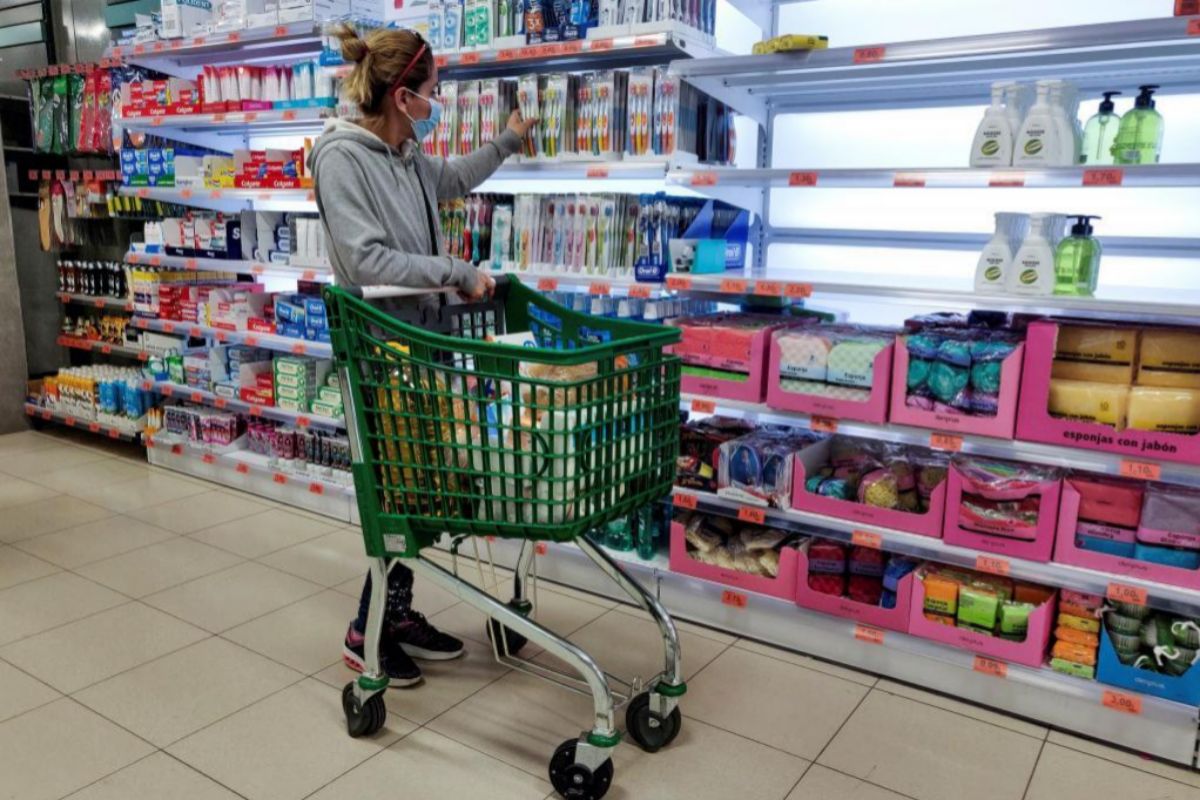The declaration of the state of alarm has turned off the light of the country and is already changing our consumption habits: we have stopped consuming in bars and restaurants and we do it more at home. These days the activity of supermarkets has exploded. They are one of the few shops that will be able to stay open these two weeks and sales are skyrocketing these days because many consumers, faced with the prospect of being locked up in their homes, are hoarding product to a greater extent than usual.
For this reason, the government will be very attentive to possible price rises, sources close to the sector explain, and, in fact, the royal decree of a state of alarm approved this Saturday will allow them to intervene to guarantee the supply of basic products. In other words, if milk were to skyrocket at prohibitive prices, for example, they could set the cost of selling it to the public. Responsible for the Ministry of Consumer Affairs met with consumer organizations last Friday, among other things, to address this issue.
Sources of the sector clarify that the sales of the supermarkets are concentrated these days, but "in reality that does not mean that they are going to sell more, the only thing that has been advanced". What there will be is a transfer of spending from the hospitality industry to the supermarket, and then consume at home. Something similar already happened during the economic crisis, when we stopped going to bars and bought in stores to consume at home.
From the bar to home
"This transfer will have an effect on prices, especially on fresh produce, which are the most sensitive to increases," says an expert in the distribution sector.
The prices of fresh products have already skyrocketed in 2019. It was a year in which mass consumption (encompassing food, beverage and drug and hygiene products that we buy in supermarkets and hyper) fell by 0.9%, especially due to packaged food, which fell 1.2%, and higher consumption outside the home, according to data from the consulting firm Kantar Worlpanel. It is the opposite of what is happening now. However, companies billed more and it was partly due to the increase in prices, especially fresh ones, which increased by 2%.
These items are more price sensitive than packaged items, which are usually stable, with no or almost no label variations. Therefore, explain other sources, "it is not likely that rice or pasta will rise, fruit or vegetables will."
Sources in the sector recall that «nobody wants to take advantage of the situation now or take advantage of it, and distribution (supermarket chains and hypermarkets) has not done so, and even less in these circumstances. They are aware of the public service they are providing and are focused on adapting the logistics and replenishment processes to the current peak of demand, "says this expert.
In fact, from the Association of Consumers and Users (OCU) they have monitored in recent days the prices of the most demanded products (toilet paper, rice, pulses ...) and have not noticed "hardly any variation" in them. They have revised the labels from the first days of last week, which was when people started rampaging through stores. "What there will be is a greater demand for fresh produce, because the consumption of the bar will move home and this can have an impact," they explain.
Export
In the wholesale markets you can see this variation in fruits and vegetables, "and there may be price changes that respond to specific demands, although they are not retail prices, they will give an idea," they point out.
Spain is a country that exports 80% of the production of fruit and vegetables, so if domestic consumption increases, "part of this export will go to the national market."
Export prices tend to be higher so "this increase could be carried over to retail prices." In other words, if the demand for peppers increases, part of what was exported will stay at home, but at the price of what was paid outside. "It is not happening, but there is a risk that prices for fresh produce will rise," they point out.
Where this movement is taking place is in pharmacies, where the prices of some products have soared in recent weeks. The government can now regulate the cost of medicines and medical equipment with maximum retail prices, to prevent them from skyrocketing, as has happened with face masks, disinfecting gels, thermometers (sales grew 222% a week before the closing of schools), antiseptics (sales increase of 178%) or some medications.
According to the criteria of The Trust Project
Know more- Spain
- economy
- Macroeconomy
- Coronavirus
- Covid 19
Consumption Coronavirus: Why will there be no shortages in supermarkets?
Covid-19 The risk of contagion by coronavirus in Spain in each municipality
HealthLast hour of the coronavirus | Italy closes all businesses in the country, except basic necessities

